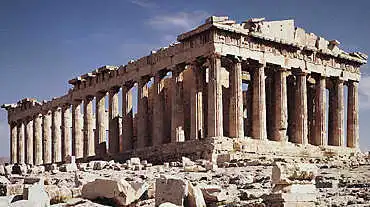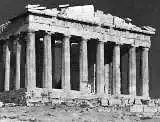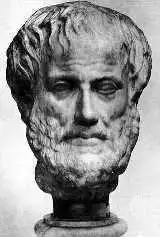Cosmos of the Ancients The Greek Philosophers on Myth and CosmologyProdicus of Ceos rodicus (c. 460-395 BC) was a student of Protagoras and a well-paid sophist, not only by Plato implied to enjoy monetary gain, particularly interested in rhetoric and careful choice of words. He was very popular, although he charged his students 50 drachmae.
rodicus (c. 460-395 BC) was a student of Protagoras and a well-paid sophist, not only by Plato implied to enjoy monetary gain, particularly interested in rhetoric and careful choice of words. He was very popular, although he charged his students 50 drachmae.
Plato has Socrates, who had been to his lectures, joke about this: Now if I had attended Prodicus's fifty drachma course of lectures, after which, as he himself says, a man has a complete education on this subject, there would be nothing to hinder your learning the truth about the correctness of names at once; but I have heard only the one drachma course, and so I do not know what the truth is about such matters. None of his writing remains, but his most famous work, The Choice of Heracles, is retold by Xenophon. When Heracles had left boyhood, he was at a solitary moment approached by two women: The one was fair to see and of high bearing; and her limbs were adorned with purity, her eyes with modesty; sober was her figure, and her robe was white. The other was plump and soft, with high feeding. Her face was made up to heighten its natural white and pink, her figure to exaggerate her height. Open-eyed was she; and dressed so as to disclose all her charms. Now she eyed herself; anon looked whether any noticed her; and often stole a glance at her own shadow. The first one was Joy, also called Virtue, the second — portrayed with so many more words — was Happiness, with the nickname Vice. Now, he had to choose between the two roads they showed him, that of Vice or that of Virtue, and the girls argued intensely for their respective merits. We need not wonder what choice the hero made. More likely than his moral teaching, his lack of belief in the divine could have provoked an Athens with limited tolerance. He is usually, among others by Sextus Empiricus, ranked as an atheist, which would help to explain the wide-spread inaccurate information about him being put to death for corrupting the youth of Athens — probably also a confusion with the fate of Socrates, as well as the alleged law of his homestead Ceos to have everyone over the age of sixty drink hemlock. This may also be the explanation to the words of Epicurean thought incorrectly put in his mouth: "Where I am, death is not, and where death is, I am not." Regarding his atheism, the arguments are equally weak. In the remaining fragments of his own words, he seem not to have spoken so strongly on the matter. What he clearly stated, was that at least some gods were human inventions: The ancients thought that sun and moon and rivers and springs, and in general everything that benefits the life of men were gods, because of the benefit coming from them. Furthermore, according to Themistius, he regarded all rites and cults as stemming from "the needs of farming", where he saw all kinds of piety have its beginning. This was, of course, radical enough to earn him the hemlock, had the authorities sought him out. What is lacking in the above quotes, is how he may have related to divinity as such. Denying the existence of some gods could not have been much less blasphemous than denying them all, but still creating a loophole for the chance of being confronted — what gods the ancients created could be others than those worshiped by his contemporaries, and though the pious rituals may have commenced with farmers hoping to win the sympathy of the higher powers, the powers in question could still have been as real and mighty as any priest would have them be. The sentiment of Prodicus, in any case, seems to point toward a serious doubt as to the existence of anything divine.
LiteraturePlato, Cratylus, WWW Perseus, 384b.Xenophon, Memorabilia, 2.1.1, translated by O. J. Todd, Loeb, London 1979. Freeman, Kathleen, The Pre-Socratic Philosophers, Oxford 1946. Barnes, Jonathan, The Presocratic Philosophers, volume 2, London 1979.
© Stefan Stenudd 2000

The Greek Philosophers
AristotleIntroductionAristotle's LifeTimelineAristotle's PoeticsAristotle's CosmologyAbout CookiesMy Other WebsitesCREATION MYTHSMyths in general and myths of creation in particular.
TAOISMThe wisdom of Taoism and the Tao Te Ching, its ancient source.
LIFE ENERGYAn encyclopedia of life energy concepts around the world.
QI ENERGY EXERCISESQi (also spelled chi or ki) explained, with exercises to increase it.
I CHINGThe ancient Chinese system of divination and free online reading.
TAROTTarot card meanings in divination and a free online spread.
ASTROLOGYThe complete horoscope chart and how to read it.
MY AMAZON PAGE
MY YOUTUBE AIKIDO
MY YOUTUBE ART
MY FACEBOOK
MY INSTAGRAM
MY TWITTER
STENUDD PÅ SVENSKA
|
 Cosmos of the Ancients
Cosmos of the Ancients